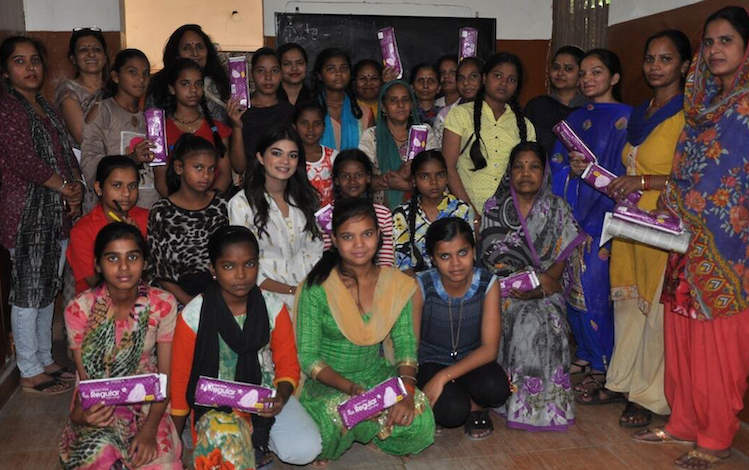

The Indian Express: Menstrual Health is a Human Right
SOURCE: https://indianexpress.com/article/opinion/menstrual-health-is-a-matter-of-human-rights-7391784/
Menstrual Health is a Matter of Human Rights
The Indian Express, Suryaprabha Sadasivan and Bhavya Sharma, 6 July 2021
(Photo courtesy of The Indian Express)
One of the most glaring but under-prioritised gender-related issues is menstrual health, which unfortunately gets compartmentalised as a women’s problem instead of getting noticed as a public health challenge and a barrier to nation-building. According to the National Family Health Survey (NFHS-4) 2015-16, India has over 355 million menstruating women. However, only 36 per cent of women were reported as using sanitary napkins, locally or commercially produced. The percentage of women using menstrual products did improve significantly across the country, especially in Daman and Diu and Dadra and Nagar Haveli, West Bengal and Bihar, as estimated in the first phase of the recently released NFHS-5. Despite this, menstrual health remains a low-priority issue in India marred with taboos, shame, misinformation, and poor access to sanitation facilities and menstrual products.
Societal restrictions during menstruation violate women’s right to health, equality and privacy. Several anecdotes reveal that women and girls are kept in isolation, not allowed to enter religious places or kitchens, play outside or even go to schools during menstruation. A survey conducted under the Integrated Child Development Services (ICDS) scheme by the Ministry of Women and Child Development (MoWCD) in 2018-19 reported that more than one-fourth of total girls enrolled in class VI-VIII drop out of school as soon as they hit puberty. The experience of menstruation for young girls is even more difficult due to inconsistent access to education on menstrual health and puberty. They are dependent on their mothers, grandmothers or women teachers for information and support to access menstrual products — these often come laden with views based on societal constructs and belief systems.


